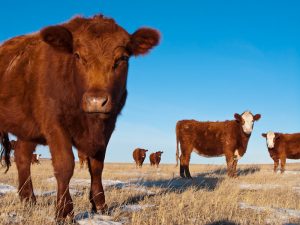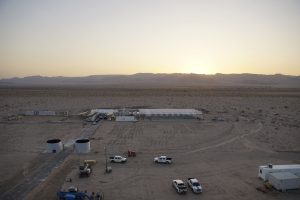Last week I wrote about meat and whether it can be part of a diet that is ecologically sustainable. Today I want to look at the alternatives. The ethical complexities are many, and are one reason why I’ve never been a vegetarian, let alone a vegan. Take the choice between whether it is more ethical to eat Welsh lamb or Egyptian new potatoes. I decided many years ago that on purely ethical grounds the spuds had the greater negative impacts. When poor countries such as Egypt export relatively low value food items like potatoes, which require a lot of water and land, it pushes up the price, and Egypt’s urban poor are forced into ever greater food insecurity. Growing for export favours the bigger produces and pushes small farmers growing for the local market out of business, and thus land ownership becomes more concentrated. There are also of course the environmental impacts of growing the crop in a water stressed country like Egypt, and the pollution and carbon emissions of such long distance trade.
Most of the world’s arable farming is now dependent on a range of fertilizers, herbicides, pesticides, fungicides and systems of ploughing that are destroying the soil and its complex microfauna. Bees, butterflies and the broad range of insect species seem to be in global decline. As the smaller and simpler life forms die off so to do the birds and mammals that feed upon them, all the way up to the iconic apex predators. These systems of farming have been responsible for a decline in organic carbon content of soil, typically from say 5% to 0.5%, which is very serious from both climate change and food security points of view. In most cases the use of genetically modified crops is only exacerbating the damage for a very small increase in global food production.
Traditionally environmentalists have argued the case for small scale, mixed, organic farming, or systems of permaculture. Such farming practices are certainly very much more ecologically sustainable, but either tend to produce less food per acre, or to require more labour. They also have not had the political support, and therefore grant subsidies, that more ecologically damaging systems of farming have had. I would certainly like to see more support for these sectors.
One area of food production that is expanding, and where huge increases in productivity per acre can be achieved in ways that are potentially very ecologically sustainable is greenhouses, polytunnels and other forms of protected cultivation. This is not to say that all such systems are ecologically sustainable, but some are. On the very small scale I have two small greenhouses and a little polytunnel in our back garden from which I harvest a huge diversity of fruit and vegetables all year round. The productivity per acre is extraordinary. However it is time consuming and the old green idea of the self provisioning economy has singularly failed to take off in this world of busy, time-poor, modern urban living.
In the next week or so I’ll write about a few of my favourite farms that are developing highly productive systems of greenhouse cultivation that show we could feed a very much larger global population with a predominantly vegan diet on a relatively small area. This could leave a considerable area of land for rewilding and for some pasture fed meat and dairy farming.



